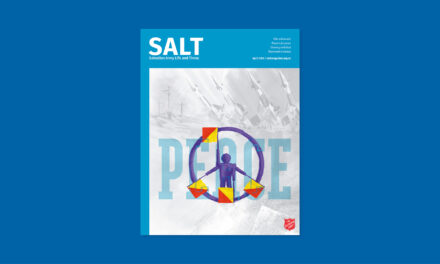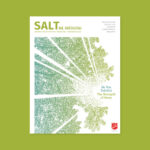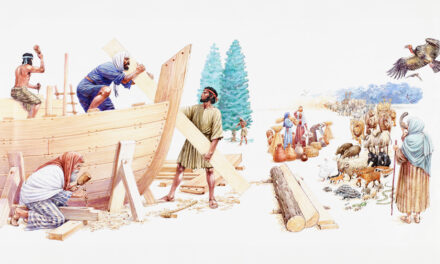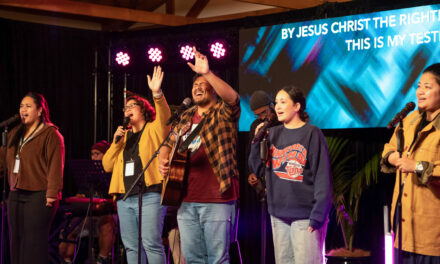
The Hidden Stream

The Salvation Army is well known for its pragmatism and social activism and has been described as ‘faith with its sleeves rolled up’. But what of the Army’s spirituality? What undergirds the mission of The Salvation Army? We consider the influences of various faith traditions upon The Salvation Army and explore the renewed 21st century interest in the ‘hidden stream’ of the contemplative tradition.
Words Jules Badger
In his highly acclaimed book, Streams of Living Water: Celebrating the Great Traditions of the Christian Faith, Richard Foster identifies six broad traditions within Christian spirituality: the contemplative tradition (the prayer-filled life); the holiness tradition (the virtuous life); the charismatic tradition (the Spirit-empowered life); the social justice tradition (the compassionate life); the evangelistic tradition (the Word-centred life); and the incarnational tradition (the sacramental life).
So where does The Salvation Army ‘fit’ within these great traditions? What ‘stream’ best describes us? And does it matter?
Overlapping streams
For some readers Foster’s list will have caused you to declare unequivocally that The Salvation Army is part of the social justice tradition and has been since its inception. Many will say no, The Salvation Army is obviously part of the holiness tradition. Others will affirm that our fervent cries to God to ‘send the fire’ not only reveal our charismatic roots but attest to our continued reliance on the empowerment of the Holy Spirit. Many will point out that our international mission statement asserts that we are part of the worldwide evangelical Church. Still yet others may highlight our incarnational leanings because, for the Salvationist, all of life is sacramental.
But what of the contemplative tradition? Surely there is no correlation between the Army’s pragmatic activism and the call to stillness, silence and solitude. However, our history would say otherwise; for example, the renewed interest in the contemplative tradition today within The Salvation Army as evidenced by spiritual/silent retreats for officers, teaching at youth camps and some corps introducing regular quiet days into their schedule.
Author of Other Voices, Australian officer Major Dr Christine Faragher posits that, ‘The streams are not to be understood as limited to particular denominational groupings, rather they are to be seen as broad streams which have informed the Church universal at particular times and in particular ways. However, it is clear that we commonly use these “labels” to describe certain groups within the Church. So we talk of “evangelicals” or “charismatics”, for example as though such terms cancel each other out. The reality is that there is much overlap of the streams within denominations and within individuals.’
Other Voices began as Christine’s 2008 master’s thesis, ‘The Hidden Stream: The Contemplative Tradition in the Spirituality of The Salvation Army’. Christine’s research of early Salvationists clearly shows that the spirituality of our founders William and Catherine Booth, and indeed that of Salvationists throughout our history and still today, was influenced by various Christian traditions or streams of faith.
‘The Salvation Army cannot be described adequately using one-dimensional or two-dimensional descriptors of a particular Christian tradition. It is a rich and complex movement made up of many different streams,’ says Christine. ‘There are many ways of being a Salvationist, just as there are many ways of being a Baptist, or an Anglican, or a Catholic. Salvationism is broader than is generally acknowledged. The Army is richer, not poorer for this diversity.’
The same great river
Now retired, Christine is a practising spiritual director, supervisor and lecturer. But in 1999, she was on The Salvation Army’s officer training college staff in Melbourne when a young Lt-Colonel Liz Gainsford was a cadet. Now the secretary for Spiritual Life Development here in the New Zealand, Fiji, Tonga and Samoa Territory, Liz says that Christine’s lived example and broad thinking about spirituality helped shape Liz’s own approach and practice.
Liz grew up during the era when The Salvation Army was seen as very different and even quite separate to the wider Church. And while Liz testifies to a rich faith and wonderful role models throughout her childhood and adolescence in The Salvation Army, during the 20-plus years of her officership, she has observed an increasing openness to other ways of being with God. This she says has been enriching for individual members and also strengthened the spirituality of our 21st century Army.
‘We see ourselves now as very much part of the wider Body of Christ. We may have different focuses and even varying roles to play within that, but we are all one,’ affirms Liz. ‘We share more readily with one another, and the internet has given us access to wider Church practices and resources. This exposure has opened the minds of Salvationists to different ways of connecting with God. For a long time, I thought we all had to do faith in the same way—that there was a “right” way. But our personalities are different and how we connect with God is unique, so this has been a huge unlearning journey for me and I know for some others too. It’s so important that people are free to explore a range of options for connecting with God, not to mention try new practices during different seasons and life stages.’
Liz is acutely aware that pragmatism is integral to the DNA of The Salvation Army. And yet she also believes that there is not only room for, but evidence of, other building blocks contributing to that DNA. Christine agrees emphatically. A key finding of her research was the connection between the Army’s missional framework and its spiritual roots. ‘The meeting of the contemplative tradition and our activism is not something new, but something that has always been,’ she says. ‘The contemplative tradition is part of who Salvationists are, it has been a present, but hidden, stream in the spirituality of The Salvation Army.’
Liz articulates the vital necessity of the meeting of these two streams when she says, ‘The activism that is so strongly evident in The Salvation Army sits so nicely alongside the contemplative tradition. They are both streams that flow into the same great river! In the same way that considered contemplation leads to some sort of response or action, leaping into action without prayerful contemplation is unwise. Sometimes in The Salvation Army we forge ahead to our detriment—we just get on with it. But we need the whole package for balance. To do things well for God, we also need to learn to “be with” God, and to listen and think deeply and reflectively.’
Contemplating contemplation?
So, what is contemplation? And what has and does the practice of it look like in The Salvation Army? There is not room here to provide a full synopsis of the subtle nuances of the contemplative tradition. However, fundamental to the contemplative stance is desire for God and to be with God. Christine quotes Smith and Grabeal who write, ‘The contemplative tradition is a response to God’s longing that we spend time with him, that we create space in our lives to be with him’.

Christine notes that while this is also a key prayer focus of the evangelical tradition, the contemplative tradition prioritises the use of quiet physical space in order to create conditions such as solitude, stillness and silence to facilitate prayer.
Many Salvationists will be quick to point out that because of its activism, prayer has always been a high priority for The Salvation Army. In a 1916 The Officer magazine article, the early Army’s great holiness teacher, Commissioner Samuel Logan Brengle, urges his comrades to, ‘Cultivate the spirit of prayer … When you feel God wooing you into his presence, and calling you to secret prayer, go!’
Christine explains that ‘Brengle’s words reveal an understanding of prayer that is gentle and warm rather than harsh, dutiful or demanding. God as the Divine Lover “woos us”, desiring to be with us. As the beloved, we are encouraged to listen and respond to that loving invitation. For Brengle this requires the focused cultivation of a “spirit of prayer” because our listening and response can easily be snuffed out by the busyness of life’s demands, including an over-zealous response to the needs of the world.’
Liz echoes both Christine and Brengle when she says, ‘In The Salvation Army we have always had great prayer warriors. Many have been faithful Salvationists who wouldn’t have described themselves as contemplative, yet what they were doing fits the definition—getting alone with God and praying in the quiet and secret spaces.’
Mission and modern mystics
William and Catherine Booth were described by their contemporaries as both activists and mystics. That our founders were activists is not in dispute, but the title of mystic is revelatory. Some modern Protestants may be wary of such a description, but in the days of the early Army and the Church of that era, and especially within the contemplative stream, it was a descriptor of deep spirituality.
With research that delved into historic issues of The Officer magazine, Christine identifies the strong love early Salvationists had for mystics such as Saint Francis of Assisi, who devoted himself to a life of prayer and service to the poor. Christine explains that ‘this is precisely the pattern one finds in exploring the spiritual influences on early day Salvationists who drew deeply from the wells of earlier traditions, particularly the contemplative tradition’.
Christine cites a 1905 article in the London Daily Telegraph, where General Booth is honoured for his contribution to national and international life and described not only as ‘the prophet of the slums’ but also as a ‘practical mystic’. Christine also cites descriptions of Catherine Booth by her contemporaries as ‘a very genuine modern mystic’.
The contemplative tradition may be the ‘hidden stream’ within The Salvation Army’s history, and even if it is making a comeback in the 21st century, by its very nature, it will remain in the background. The question is, could God be calling you to embrace the practices of this hidden stream—well-known to our forebears—that has undergirded and helped sustain our pragmatism and activism as Salvationists? Is God inviting you to become a modern mystic for the sake of our mission to the world?
Reflect, Refresh, Refuel
Online Spiritual Retreat Days
Dates: Thursday 11 April, Tuesday 11 June, Saturday 7 September, Friday 18 October
Time: 10am–3pm
Where: A place of your choice
In Mark 6:31, Jesus invites the disciples to ‘Come with me by yourselves to a quiet place and get some rest’. You are invited to spend a day just where you are, to ‘come aside’ with Jesus—to listen, to connect with God to be refreshed and refueled. The day will start with others online for prayer, reflection and teaching before disconnecting from technology to practise what we have heard, in order to intentionally connect with God. A short time of prayer together will conclude the day of retreat. This is open to everyone connected with The Salvation Army.
To register and receive the online meeting invitation and relevant information for the day please email [email protected]









